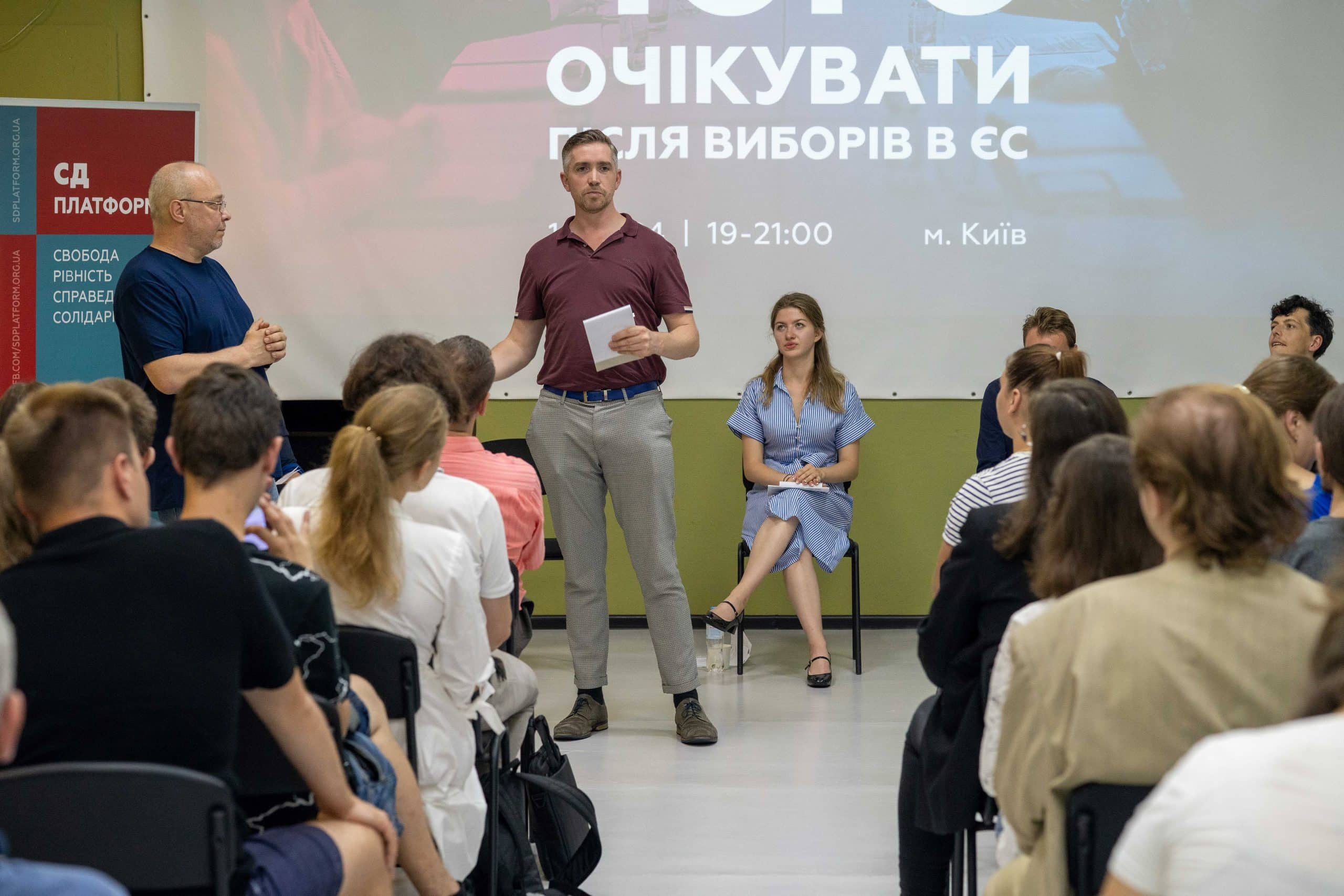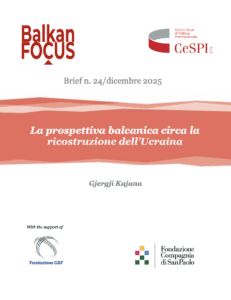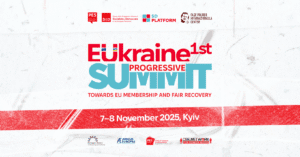Earlier this month, the European Forum for Democracy and Solidarity visited Ukraine in cooperation with other political parties and foundations from Europe. The five-day visit was dominated by visiting political actors and exploring social aspects within Ukraine’s EU integration process. But of course, the reflections of the visit were broader – an acknowledgement of the reality in which Ukraine has been living since 2014.
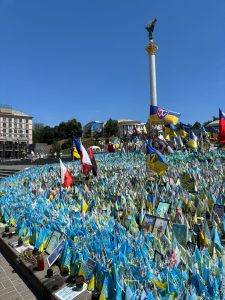 Photo left; thousands of flags in Maidan Square in Kyiv in honour of Ukrainian soldiers (July 2024)
Photo left; thousands of flags in Maidan Square in Kyiv in honour of Ukrainian soldiers (July 2024)
Uncertainties and certainties during the war
Uncertainty has reigned supreme in Ukraine since the large-scale Russian invasion in 2022. In the first months since 24 February 2022, uncertainty about the rapid Russian advance. Last year, uncertainty about the success rate of the Ukrainian offensive. And this year, uncertainty about Western – especially US – support and uncertainty about the course of the war now that the front has fairly stabilised.
What is certain is that the air alert goes off several times a day – especially in cities in the east of the country. Ukraine’s air defences are able to parry most missile attacks by the Russian aggressor – but not always. A day before the FMS visit, this became catastrophically clear with the blatant attack on Okhmatdyt children’s hospital in Kyiv, resulting in at least 33 deaths. It shows that Ukraine could urgently use more air defences to protect its cities and energy facilities.
Another daily certainty in Ukraine is power cuts. Persistent Russian attacks on power supplies mean that in some cities there is only four hours of power a day. At the time of heat waves in summer and severe cold in winter, this hits many Ukrainians hard. Thousands of generators ensure that important facilities continue to work. The need for adequate air defence and restoring power supplies is therefore crucial to many aspects of Ukraine’s economy, Julia Soldatiuk-Westerveld (Clingendael) also argued earlier this month.
Complex challenges
What is also certain is the Ukrainians’ will to win the war as well as put the country rock solid on the path of EU integration. This is not an easy path. Much of the focus during our visit was on opportunities and challenges in a post-war Ukraine. Conversations about this sometimes feel paradoxical while Ukraine is still fully engaged in an existential war, with a huge impact on all facets of society and citizenship. Nevertheless, it is important to have these conversations – especially in view of the support we as EFDS give to political actors who advocate a social and democratic course.
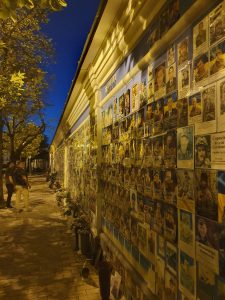
The challenges in a post-war Ukraine are therefore manifold. Huge funds are available in the reconstruction of Ukraine. This reconstruction must take place in a fair manner, where the reins are not in the hands of multinationals and large Western companies, which will have a degree of self-interest in the future Ukrainian economy. This also applies to social aspects of EU integration as a whole. Excessive liberalisation and repeating mistakes made in other Central and Eastern European countries in EU integration should be avoided in this regard. Among other things, meaningful facilitation of social dialogue between employers, trade unions and government is an important means to this end. Here lies a task for social democrats and progressives across the EU – knowledge sharing and expertise building is key here.
Photo left: the FMS met mayor of Lviv Andriy Sadovyi about the humanitarian effort in his city
Photo right: ‘The Wall of Remembrance of the Fallen of Ukraine’ in Kyiv with pictures
Of thousands of soldiers killed in war since 2014 (July 2024)
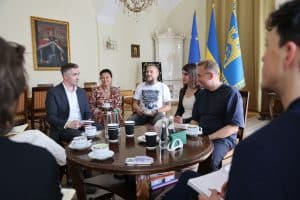
The speed of steps taken by Ukraine in the EU process is admirable. The involvement and assistance of the country’s vibrant NGO sector has also proved indispensable in this regard. An important point of focus here is the assistance and opportunities for the Ukrainian government to push through reforms at the local level throughout the country. For a broad-based EU process, it is important that institutional reforms are not merely centred in the centre of the country. The situation in frontline areas and lack of capacity due to war efforts are major challenges here.
The deployment of the EFDS
The EFDS will continue to work on these issues. A final aspect of Ukrainian democratisation is also significant here – political pluralism.
The uncertainties of war – as described above – are weakening the role of political parties and the Verkhovna Rada (parliament) in Ukrainian political processes. The latter is well explainable now that unity and cooperation between parties is key during martial law. However, to meet the several challenges around EU integration and post-war reconstruction process, Ukraine will benefit from a diverse political landscape, in which different parties and political colours are represented.
The only realistic way to deal with both the uncertainties and certainties of war is to provide adequate military, humanitarian and social support for Ukraine from the West. This will give Ukraine a good chance of winning its much-deserved future prospects around EU integration, democratisation and political pluralism.
The EFDS is very honoured to have visited Ukraine again for the first time since 2019, after years of online engagement due to the corona pandemic and full invasion in 2022. We want to thank all partners for making this possible, namely the SD Platform Ukraine and the Friedrich-Ebert-Stiftung Office in Ukraine.
